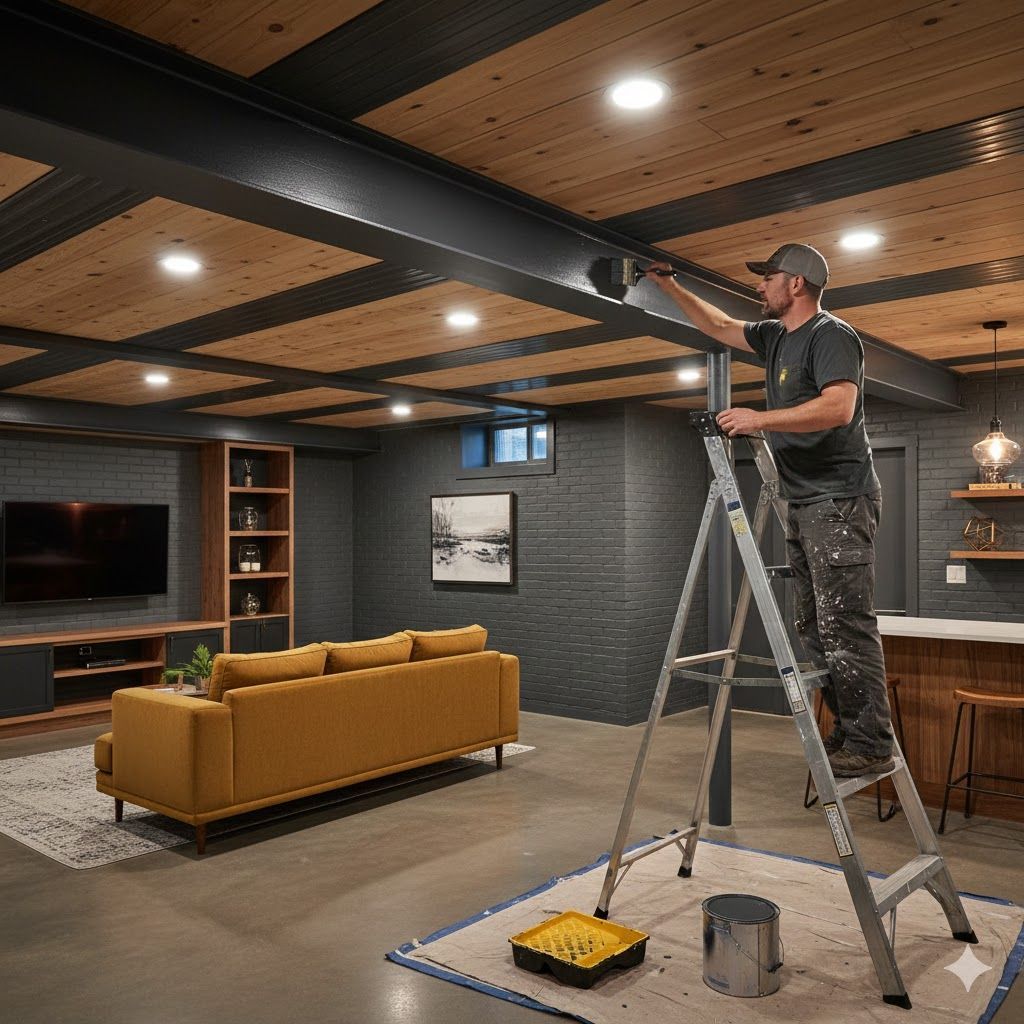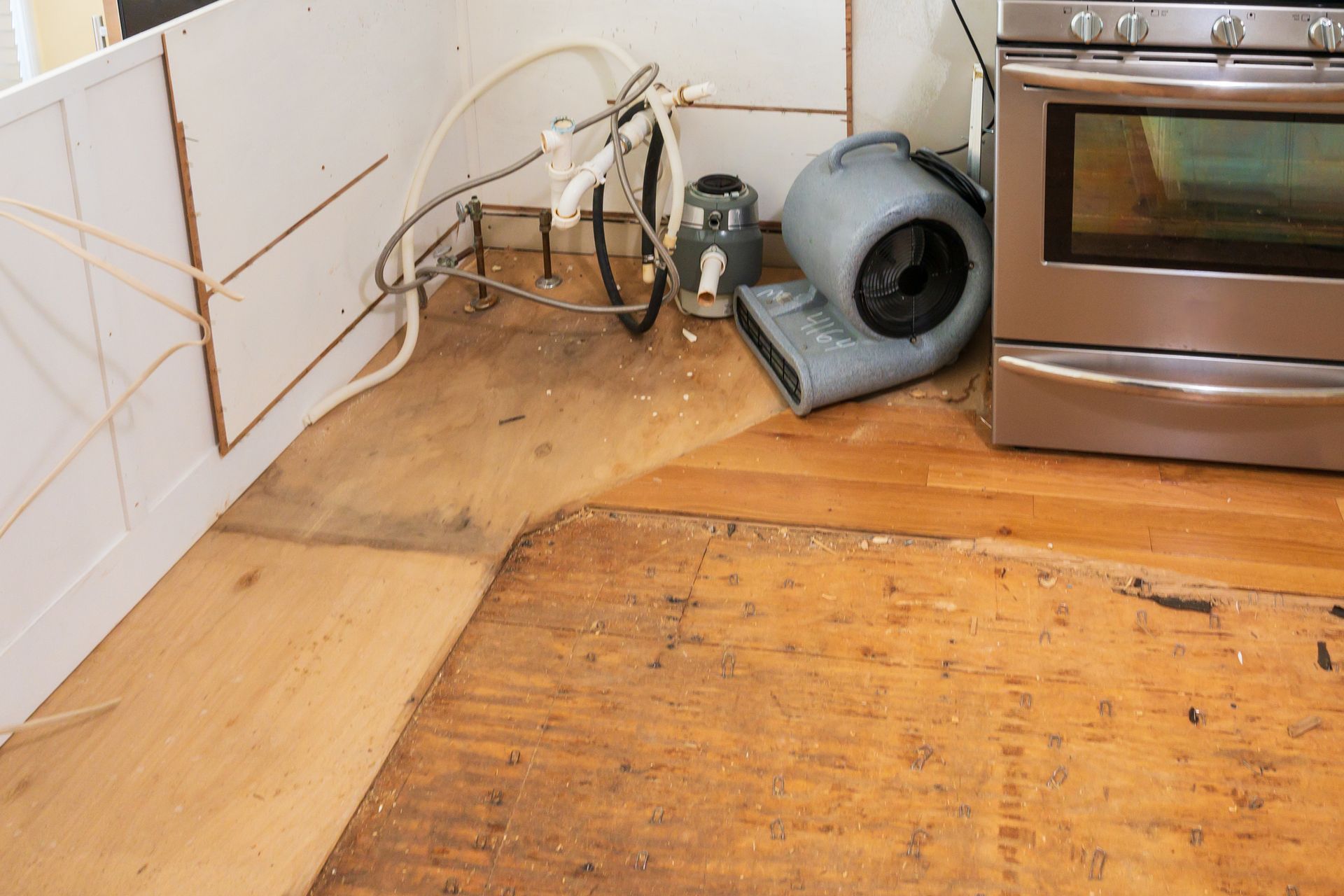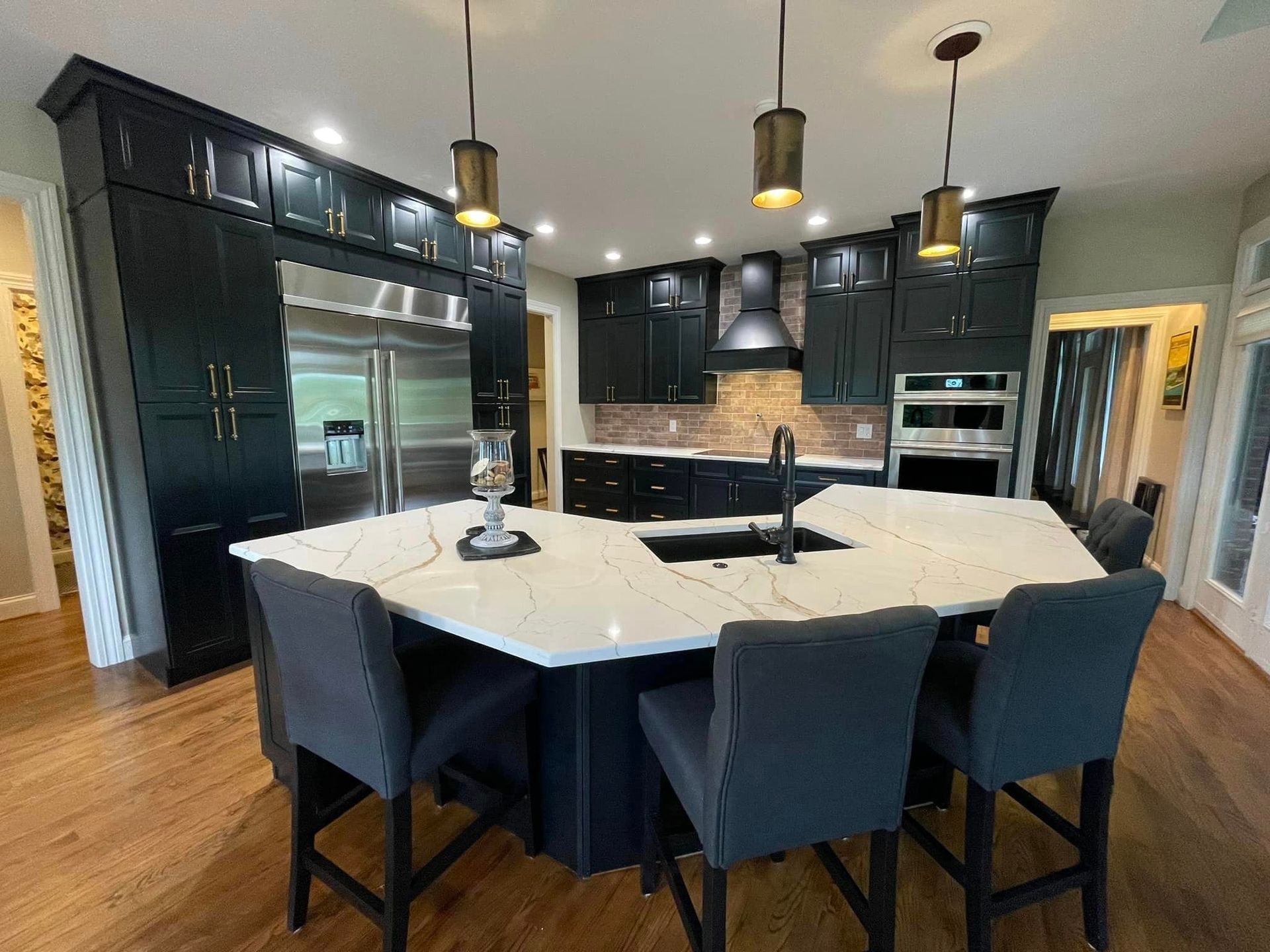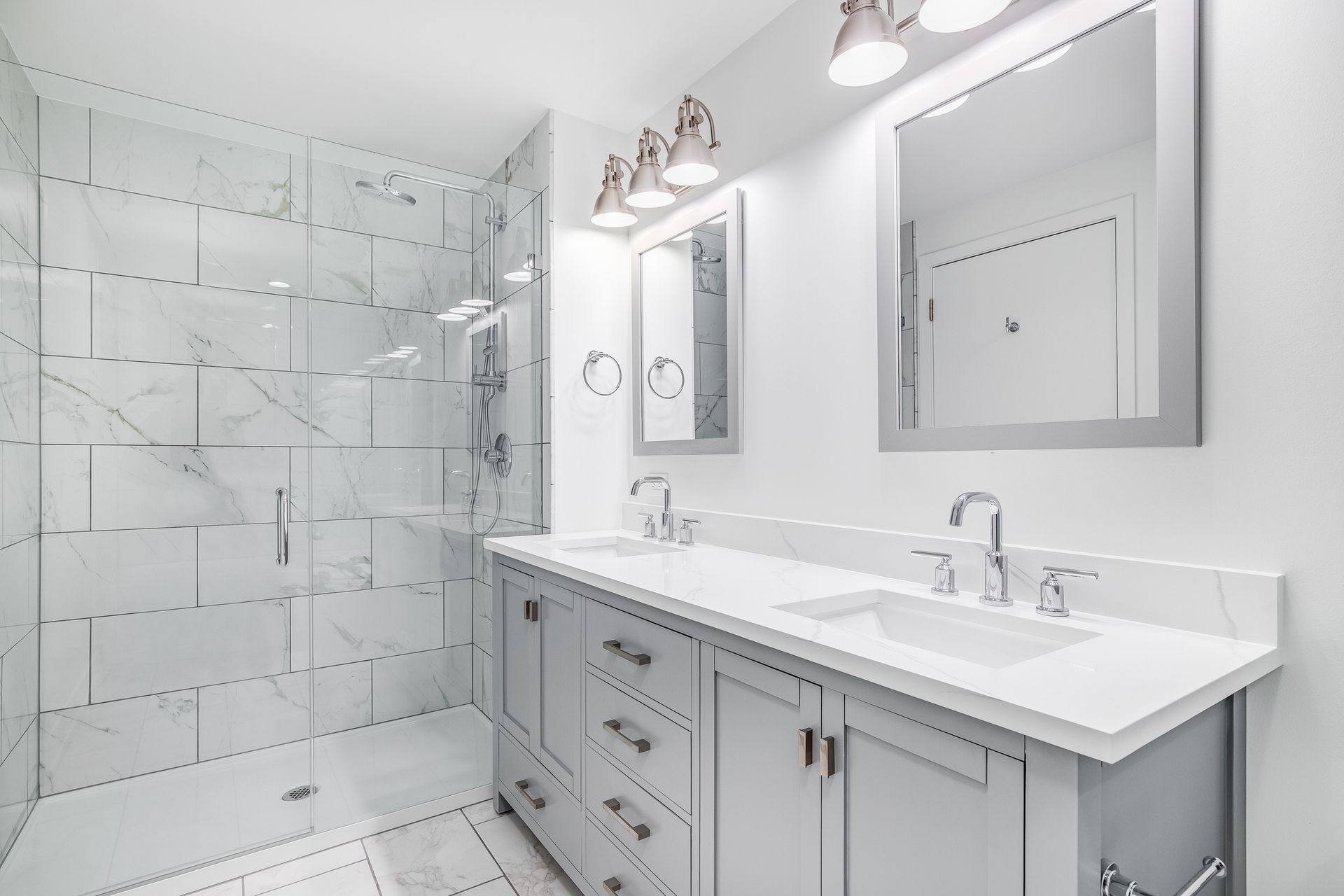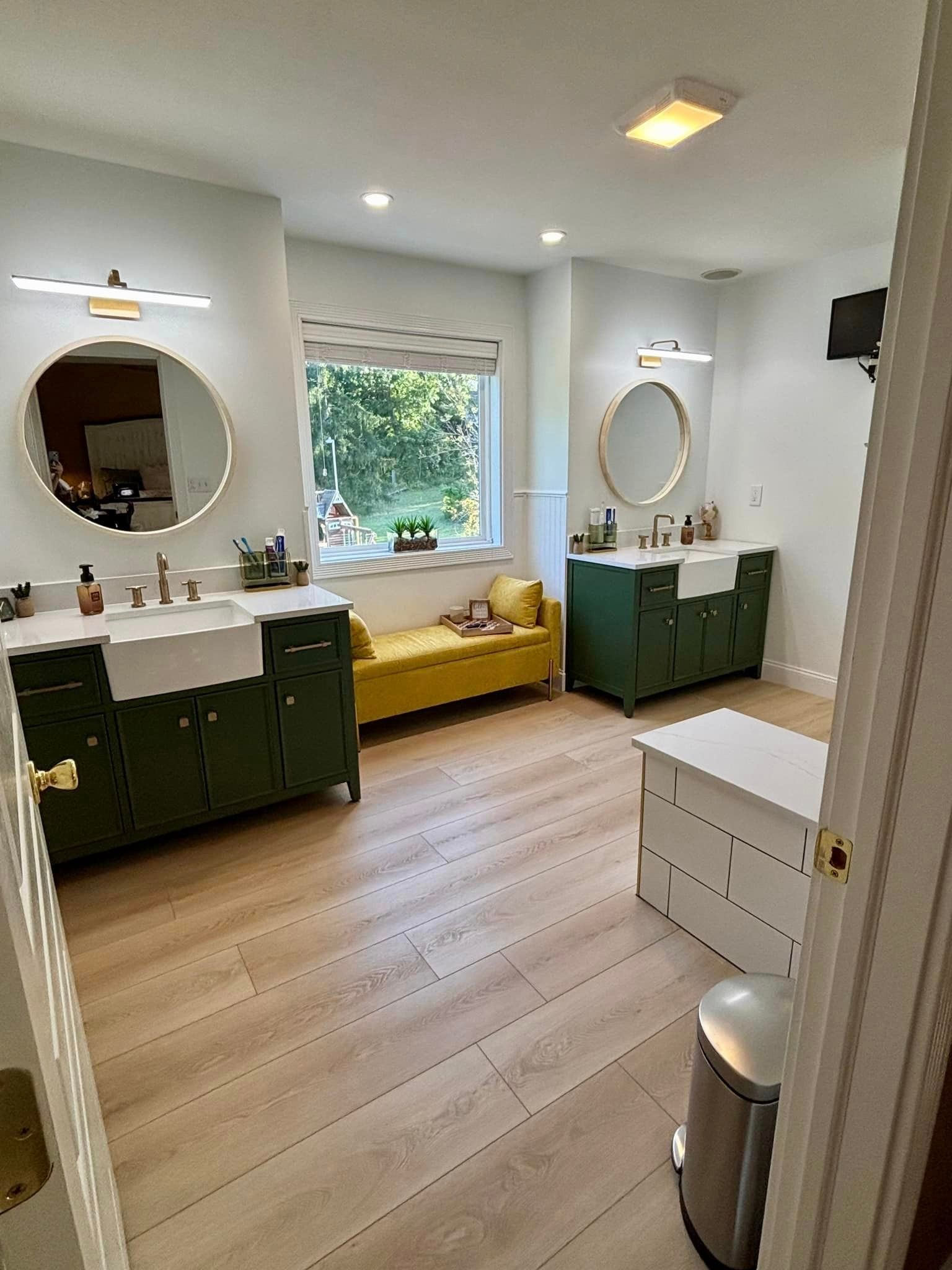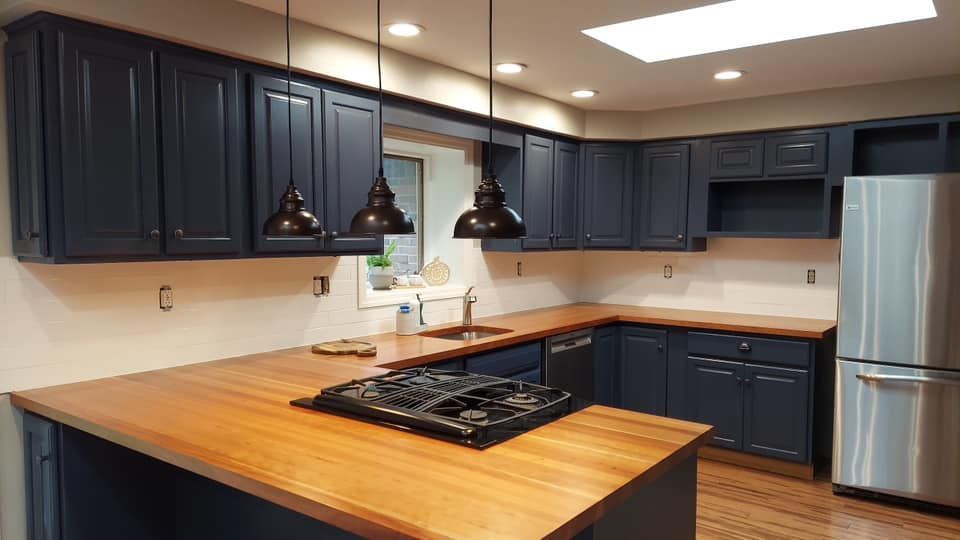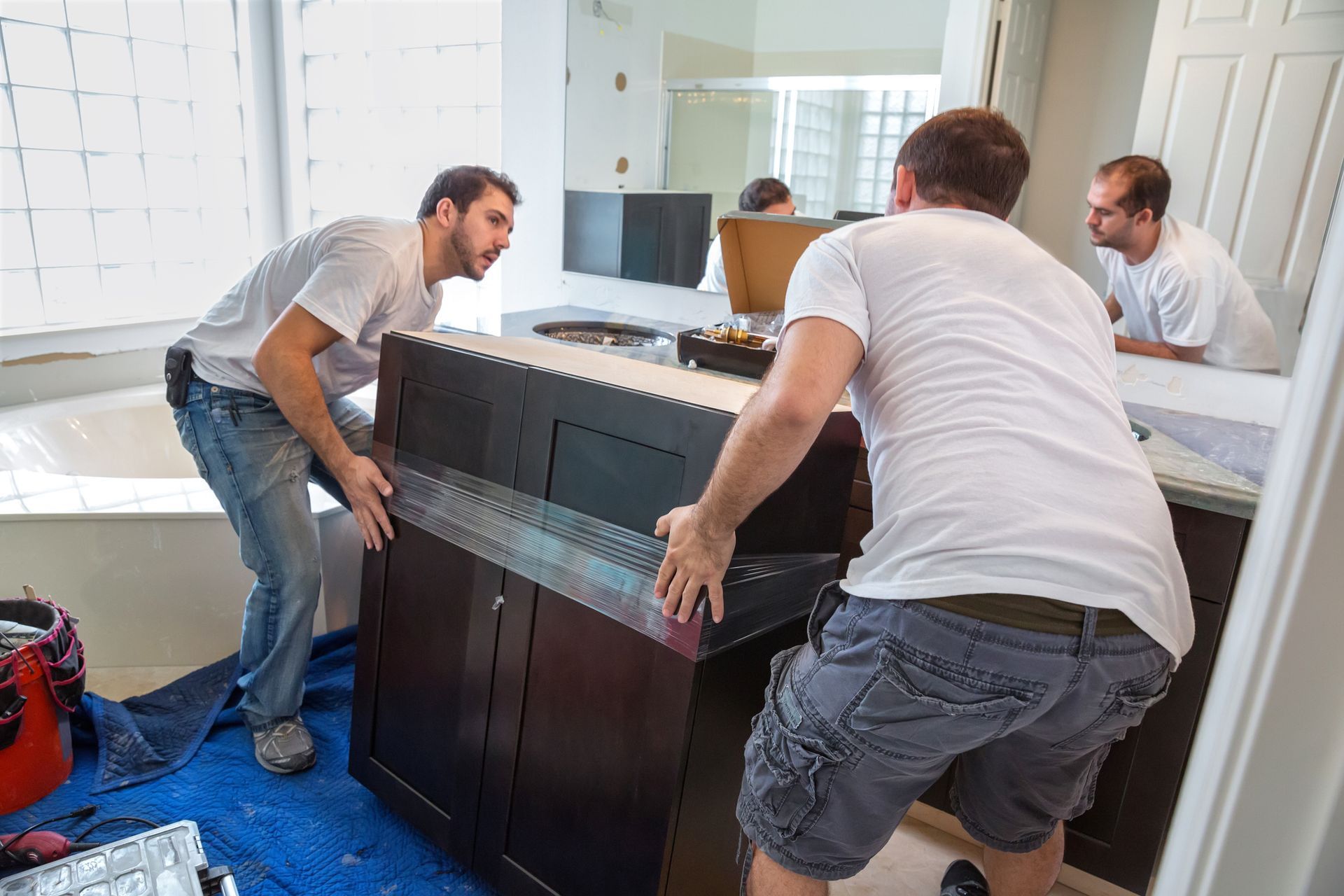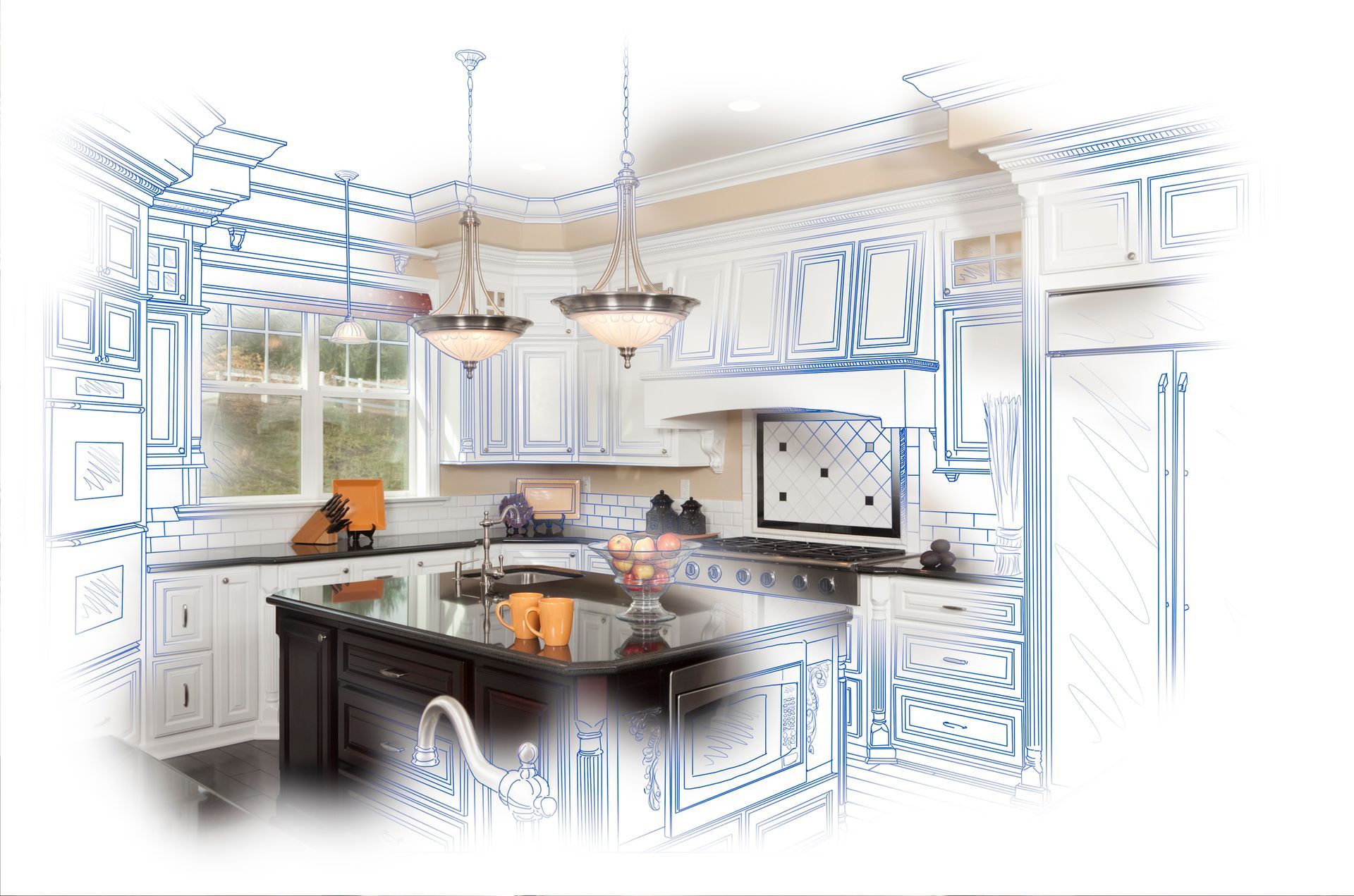Finishing Your Pittsburgh Basement Remodel: Concerns and Ideas
Finishing a basement is one of the most rewarding and home remodeling projects a Pittsburgh homeowner can undertake. It transforms unused or underutilized space into something that adds daily value, whether that's a cozy family den, a quiet home office, an entertainment hub, or a welcoming guest suite.
Basement remodeling brings its own set of challenges in Pittsburgh. From older houses with foundational quirks to ever-present moisture concerns caused by the city's rainy climate and topography, it's not always as simple as painting walls and laying down carpet.
That's where Obringer's Painting and Remodeling steps in. As local experts in basement remodeling services, we understand how to navigate these complexities while delivering stylish, functional, and long-lasting results tailored to Pittsburgh homes.
Facing the Challenges of Basement Remodeling in Pittsburgh
Water and Moisture: The Most Common Obstacle
If there's one issue nearly every homeowner faces with finished basements in Pittsburgh, it's moisture. Pittsburgh's rainfall, snowmelt, and hilly terrain often combine to create damp, humid conditions below ground, especially in older homes with porous foundations or outdated drainage systems.
Waterproofing should be the top priority if that is a current issue. This may mean installing interior French drains to redirect water, setting up a sump pump system, or applying professional-grade sealants to walls and floors. Dehumidifiers can also play an essential role in keeping your basement dry and comfortable, reducing the risk of mold and water damage to materials such as drywall. While we don't offer basement water proofing services, we are more than qualified to complete your basement renovation project on time, properly, and to your specifications.
Low Ceilings and Exposed Utilities
Another common feature of Pittsburgh basements, especially those in older homes, is the low ceiling height. You may also encounter exposed ductwork, plumbing lines, and electrical conduits. These features can feel limiting at first, but with the right design approach, they become opportunities rather than obstacles.
Instead of dropping the ceiling across the entire room, consider building out soffits just where necessary to conceal pipes and ducts. Leaving some elements exposed and painting them a uniform dark color can create a modern industrial look that adds character while preserving headroom.
Building Codes and Permits: What You Should Know
Navigating Allegheny County's building codes is a key part of any successful basement remodel. For instance, if you plan to add a bedroom, it must include an egress window or exterior door to meet safety regulations. Basement ceiling height must meet minimum standards (usually 7 feet in finished spaces), and radon testing is strongly advised, given Pittsburgh's natural geology.
Permits are required for any remodel involving structural changes, plumbing, or electrical work. At Obringer's, we manage this process on your behalf to ensure your project meets all local standards and passes inspections without delays.
Storage Concerns: Smart Solutions That Don't Sacrifice Space
One of the biggest fears homeowners express about finishing their basement is losing storage. That's completely valid—basements often serve as a home's overflow for holiday décor, tools, off-season clothing, and bulky items.
Our approach is to integrate storage seamlessly into your design rather than eliminate it. Custom-built-ins along the perimeter can provide hidden storage while maintaining a finished appearance. Under-stair drawers and cabinets can maximize typically wasted space. Even sliding barn doors can disguise dedicated storage zones without disrupting the aesthetic of your living space.
For homes with significant utility areas, such as a furnace, hot water tank, or laundry zone, overhead shelving or raised platforms can create functional storage without interfering with access or airflow.
Designing a Multi-Use Basement That Works for Your Lifestyle
Many homeowners don't want to dedicate their entire basement to just one purpose, but with thoughtful layout planning, you don't have to. By dividing your space into clearly defined zones, you can combine a variety of functions, such as entertainment, work, fitness, and guest accommodations, without creating visual clutter.
For example, one corner of the basement might house a compact gym setup with rubberized flooring, wall mirrors, and adjustable lighting. Just steps away, the space could transition into a home office area with hardwood-style vinyl planks and soft pendant lighting for a warmer atmosphere.
Even small design choices, like area rugs, feature walls, or subtle variations in ceiling height, can help differentiate zones while maintaining a cohesive look. Soundproofing measures, like insulated walls or acoustic panels, also ensure that your home theater doesn't disrupt your remote work hours or your kids' playtime.
Inspiration for Specialized Basement Spaces
Basement Bar: Pittsburgh-Style Entertaining
Imagine gathering friends for a Steelers game in your finished basement with a bar. Pittsburghers love a good entertaining space, and basement bars are a fantastic way to bring that vision to life. You'll first need to decide between a wet bar, which includes plumbing for a sink and possibly an ice maker, or a dry bar, which is more streamlined and often more straightforward to install.
In terms of aesthetics, we're seeing strong trends toward industrial finishes—think metal accents and concrete countertops or rustic wood-paneled bars with Edison-style lighting. Our team can help you find a look that reflects your taste and works with your home's overall style.
A Peaceful Home Office Retreat
With many professionals now working remotely, a basement home office has become a must-have in Pittsburgh. Natural light can be in short supply, so we recommend adding glass-paneled doors or expanded window wells when possible. Ambient lighting, neutral tones, and strategic acoustic insulation can all help create a peaceful, productive environment away from the bustle of daily household life.
Movie Theater Magic
A basement home theater can provide the perfect escape for homeowners who want a dedicated entertainment zone. Wall insulation and sound-dampening treatments are key to creating a cinematic experience without an echo. We also help you plan ideal screen placement based on room dimensions, seating arrangement, and ambient light levels to prevent glare and maximize immersion.
Guest or In-Law Suites: Privacy Meets Comfort
Many Pittsburgh families are remodeling with multigenerational living in mind. Adding a guest suite or in-law quarters in the basement allows for privacy and convenience, especially when paired with a private bathroom and kitchenette. Ensuring legal egress and emergency exits is a must, and some homes may even allow for a separate exterior entrance to truly make the space independent.
Upgrading Your Half Bath to a Full Bath
Turning a simple powder room into a full bath is a common request in finished basement projects and one that can make a big difference. However, basement bathrooms require extra care, especially in Pittsburgh, where older plumbing infrastructure and grading challenges can complicate drainage.
We evaluate whether your floor has the proper slope for a conventional drain or if an ejector pump is necessary. Choosing compact, space-saving fixtures and installing robust ventilation ensures the bathroom remains functional and mold-free, even in Pittsburgh's humid seasons.
Can You Add a New Bathroom to Your Basement?
If you're starting from scratch, adding a completely new bathroom to your basement is a bigger commitment, but is often worth it. Up-flush toilet systems or macerating units make it possible to install a bathroom even when traditional gravity-fed lines aren't feasible.
Of course, this kind of upgrade comes with added cost, especially if structural plumbing changes or concrete cutting are required. However, for many homeowners, the increase in convenience and home value justifies the investment. Obringer will walk you through what's possible based on your budget, layout, and existing infrastructure.
Why Choose Obringer's Painting and Remodeling?
Remodeling a basement isn't just about good design; it's about knowing how to work with Pittsburgh's unique homes and building codes. At Obringer's Painting and Remodeling, we bring years of local experience to every project. Whether it's navigating moisture issues, planning a multi-purpose layout, or handling every permit and inspection, our team is dedicated to getting the job done right.
We pride ourselves on craftsmanship, professionalism, and personalized service. Homeowners across Pittsburgh trust us not just because we do great work but also because we listen, plan carefully, and treat every home like it's our own.
Let's Turn Your Basement into a Beautiful, Livable Space
If you're ready to transform your basement into a space that brings style to your home and relaxation and fun to your lifestyle, Obringer's Painting and Remodeling is here to help. From the first consultation to the finishing touches, we'll be your trusted partner in creating a finished basement you'll love for years to come.
Contact us today to schedule a free consultation and explore your basement's full potential.

Author: Derek Obringer
Owner & Founder of Obringer's Painting and Remodeling, Derek Obringer brings attention to detail, together with experience, and superior customer service into each and every home that his company does work.
Painting And Remodeling Blog
